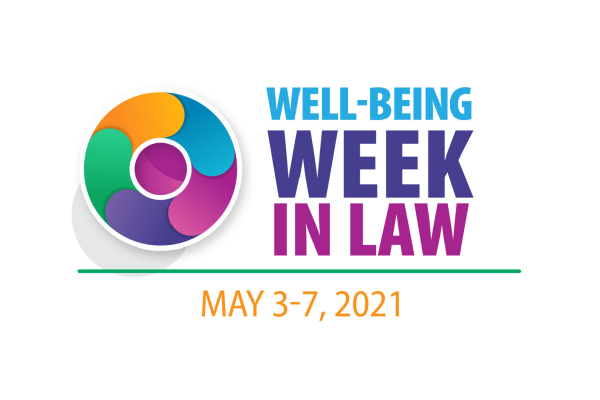With plenty of external sources of stress in the legal profession and life generally, we take about 18,000 breaths in a typical day — and each is an opportunity to feel better.
Introduction to Utilizing the Power of Your Breath
WATCH INTRO VIDEO – edited transcript follows:
Our own breath can play a role in mental and physical well-being to help us feel more resilient, less anxious, and improve our mood. We’ve known for thousands of years that our breath can be a powerful tool to work with stress in the body, the ancient yogis and Buddhists recognize that breath can be a powerful tool to stabilize the mind.
Western science has only recently caught up to this. Really, starting in the 1970s with Herbert Benson, who was a physician and a pioneer in mind body research at Harvard, discovered that we can harness the breath and really use the breath to help us feel better physically. He reported that practicing breath awareness or meditation can actually reduce blood pressure, resting heart rate and can lead to a sense of well being. So his ability to demonstrate this with scientific rigor really brought meditation into the forefront. In the integrative medicine world and over the past 40 or more years, more and more practitioners are discovering the power of the breath for mental health and well-being. Researchers are looking at how we breathe can influence how we think, how we feel and how we act.
Most of us though don’t even notice when we’re breathing. In fact, we breathe about 18,000 times a day. But how many times do we actually pause and stop and notice our breath? I’m going to provide 2 practices that you can watch below to help you see the power of the breath.
One of the practices involves what we might think about is more of an activating practice, and what I mean by activating is it can help us feel energized. It can help us feel focused, attentive, stable in our mind and body. This is called coherent breathing, which is really a balancing breath. So we’ll do that practice along with some arm movements that go with the breath practice to help you feel invigorated, awake, alert and ready for your day.
The second practice I’ll introduce is more of a relaxing and calming breath. It emphasizes a sense of ease. When we can turn toward the breath and actually pay attention to the breath itself, using mindful awareness of the sensations of breathing, it can reduce anxiety and create calmness in the mind and body.
So depending on what you need at the moment, you might find an activating practice is really helpful so the coherent breathing may be something that you gravitate toward; if you’re finding that you’re feeling anxious or wanting calmness and ease and soothing, you may find the second practice, the mindfulness of the breath practice, to be helpful.
In my own practice, I like to do both depending on the time of day what’s happening emotionally and physically in my mind and body. I might select one or the other, and I encourage you to experiment and try each of these to see what might land for you.
There are many, many breath practices, so these are just two of a wide variety of different breathing techniques that you can use for well-being. So thank you for tuning in and I hope you find that breath practice is supportive and helpful for you along your own journey for wellness.
. . .
COHERENT BREATHING PRACTICE
Coherent Breathing Exercise Transcript (Download)
Mindfulness of the Breath
Mindfulness of the Breath Exercise Transcript (Download)
Upcoming Related Programming!
THURSDAY, MAY 5, 2022 at 9AM: Mindfulness Movement & Self-Compassion Tools at Work (30-minute session with LCL MA’s Dr. Tracey Meyers)
STARTING TUESDAY, MAY 10, 2022 at 12pm: Mindfulness & Self-Compassion Tools for Legal Professionals (4-Part Series – Weekly Each Tuesday from 12pm – 1pm, with LCL MA’s Dr. Tracey Meyers)
Free & Confidential Consultations:
Lawyers, law students, and judges in Massachusetts can discuss concerns with a licensed therapist, law practice advisor, or both. Find more on scheduling here.




